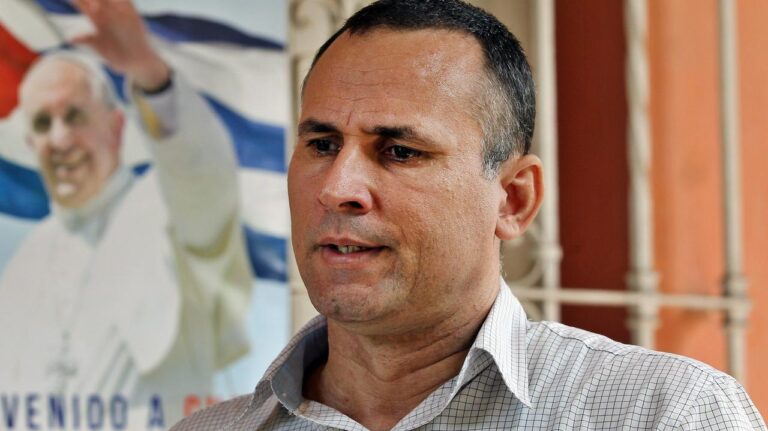Cuban dissident and human rights defender Jose Daniel Ferrer told Reuters on Thursday that he will stay at home after being released from prison. This is the result of Vatican mediators, according to which 553 prisoners should be released from prison.
“The first prisoners of a group of 553 prisoners requested by the Vatican were released from Cuban prisons on Wednesday,” independent Cuban media reported. Among those released on Wednesday are activists including Dariel Cruz García, Lisdiana Rodríguez Isaac and Donaida Pérez Paseiro, who are considered political prisoners.
José Daniel Ferrer is the most important prisoner and dissident ever to be released. “I am home, healthy, I have the courage to continue the fight for Cuba’s freedom,” Ferrer told Reuters in a brief telephone interview.
Jose Daniel Ferrer (2015) Alejandro Ernesto / EPA / PAP
Ferrer’s multiple arrests
Ferrer, head of the Patriotic Union of Cuba (UNPACU), once the largest and most active opposition group in the decades-long communist-ruled country, was arrested in 2003 as part of a nationwide crackdown known as the Black Spring. In 2011, he was released on parole.
But in October 2019, he was sentenced to four years in prison on charges of kidnapping and raping a man, most of which was served under house arrest. Cuban officials have since said Ferrer is a US-sponsored dissident, but said he was not arrested for political views. Critics say the prosecution is based on fabricated evidence.
Ferrer was arrested again on July 11, 2021, when he tried to join a protest in Santiago de Cuba, Cuba’s second largest city. It is said that this behavior was a violation of the terms of his house arrest. As a result, he was accused of violating public order and returned to prison.
Cuban authorities released political prisoners
Cuban President Miguel Diaz-Canel announced the release of the prisoners on Tuesday, adding that they were serving sentences “for various crimes.”
READ ALSO: Havana releases prisoners, Cuba is removed from the list of countries supporting terrorism
The human rights organization “Protection of Prisoners” reported that at the beginning of January 1161 opponents of the Cuban regime were in prison. According to estimates by the Prisoners’ Defense Agency and another civil society organization, Justicia 11J, almost half of those imprisoned in Cuban prisons are people arrested in the July 2021 protests. The anti-government protests in Cuba were the largest demonstrations by residents of the island since the end of the Cuban Revolution in 1959. Citizens of the demonstration first of all demanded an effective policy of the Havana regime to fight against the growing shortage of food and medicine.
Main photo credit: Alejandro Ernesto/EPA/PAP

